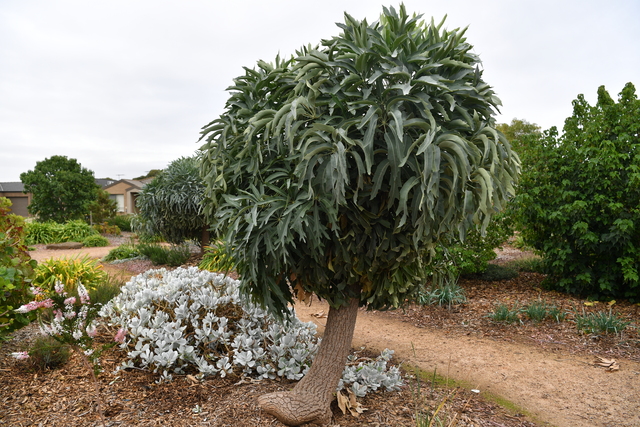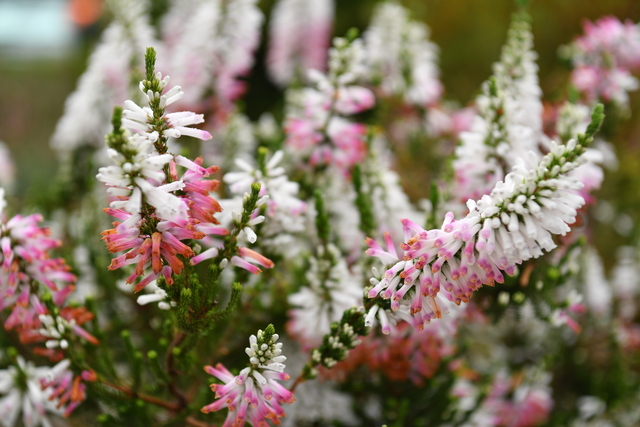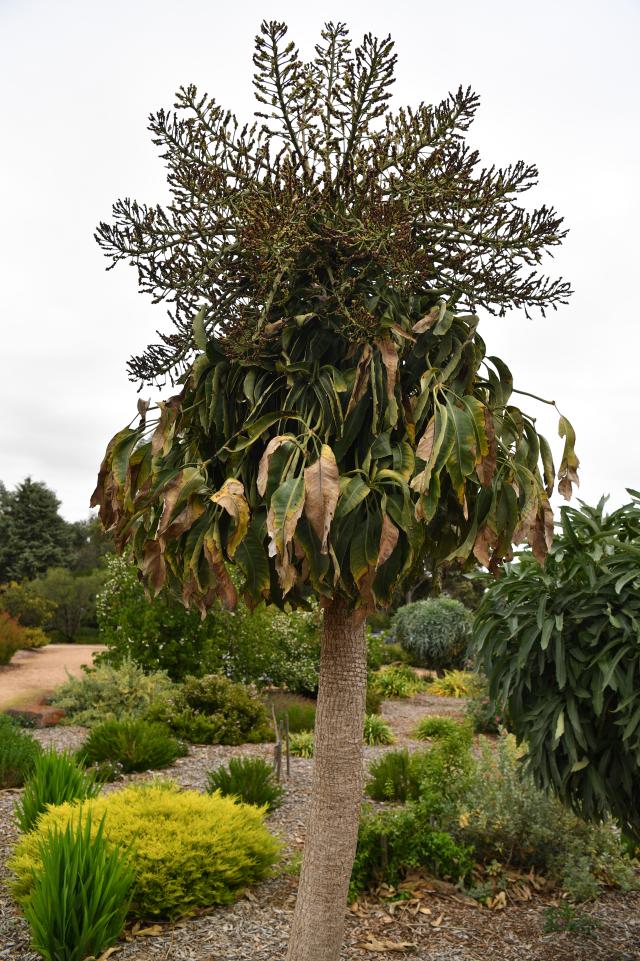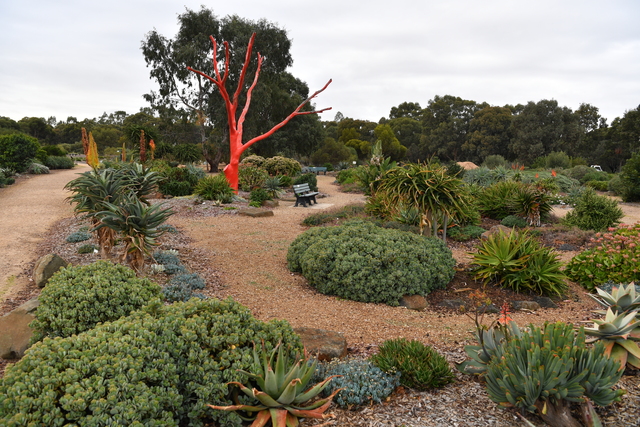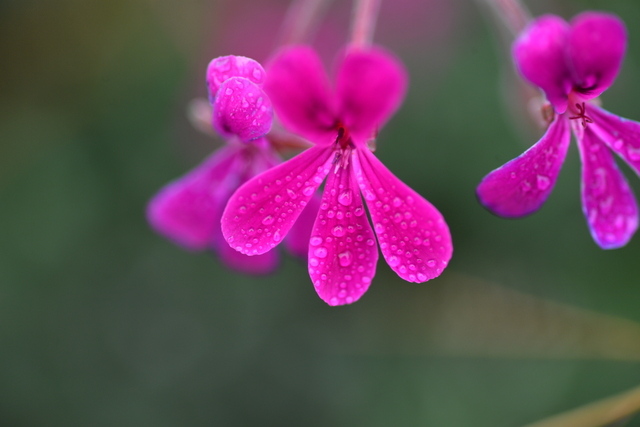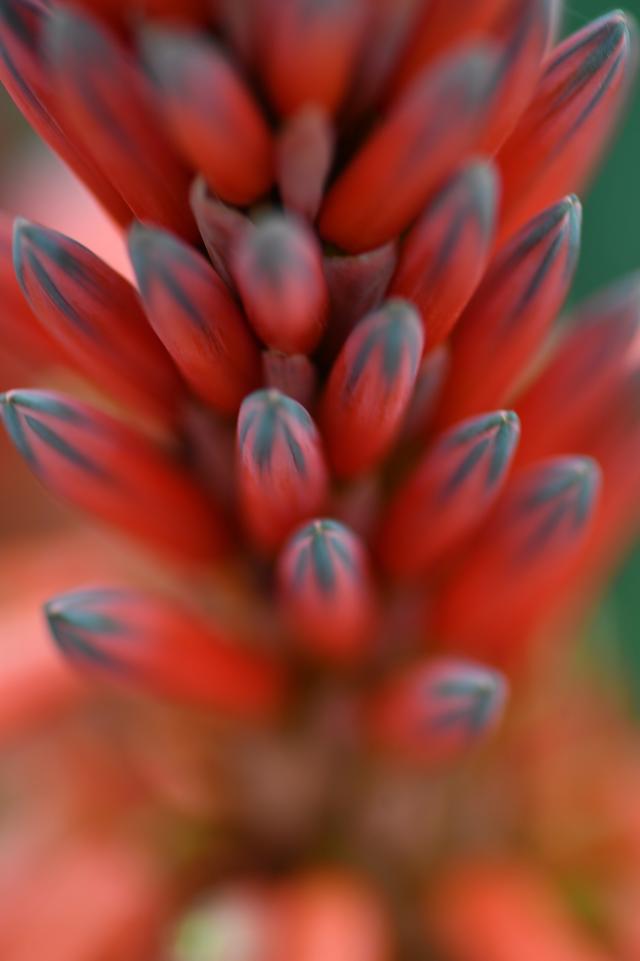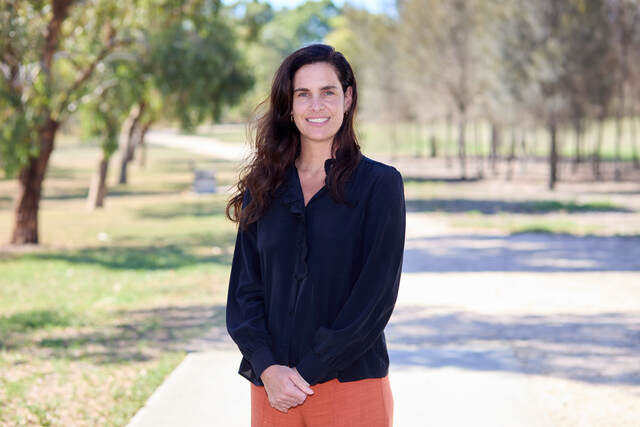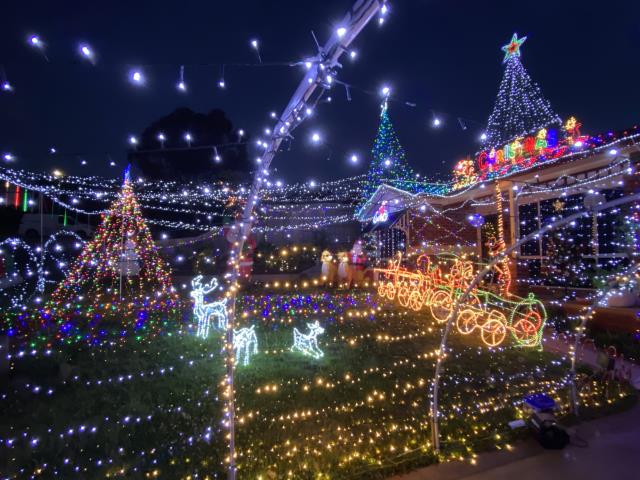It’s a Thursday morning and a group of fluoro-clad, hat wearing volunteers are gathered under an expansive, shady eucalyptus tree near the lake within Melton Botanic Garden (MBG) enjoying a morning tea break with freshly baked goods and a cuppa. As a volunteer for over a year for the Friends of the Melton Botanic Garden, I am but one of many who have played an active role in developing and maintaining the garden.
The gardens encompass a 25-hectare area of natural beauty and endless discovery made up of indigenous plants and exotic plants from similar climatic conditions. Melton Botanic Garden can be discovered tucked in between Melton’s High Street and the freeway. The land on which the garden is developed is on Kurun jang balug land of the Wurundjeri-willam clan, a clan of the Woi wurrung people. These rich, diverse gardens celebrated their 20th anniversary earlier this year.
The garden is very popular with dog walkers, people exercising and young children exploring the nature space playground which is beautifully designed with natural materials and overlooking the lake. Many community groups visit on a regular basis to enjoy the peaceful public space.
I work in the Koori Student Garden, a space originally designed by a team made up of a landscape designer and a group of Melton primary and secondary Aboriginal students. The garden is designed around a serpentine-type shape with gravel paths leading into circular spaces and planted throughout with indigenous species of Melbourne’s Western Plains.
A typical day might find me pruning the correas, cutting back the rampant salt bush varieties and mulching the garden beds with the pruning cuttings in a method called ‘chop and drop’. There is very little irrigation throughout the garden and plants are watered only during their establishment phase, for the first year or so.
While it is impossible to do justice to the variety and expansiveness of the whole garden, some of the plant collections include: Dryland Eucalypts, West Australian, South Australian, Eastern Australian Dryland, Southern African, Mediterranean region, Californian, Central and South American, Victorian Volcanic Plains and Bushfoods.
A fantastic resource developed in 2011 is the Garden Explorer | Melton Botanic Garden on which you can explore the specific name and details of all the plants found within the garden. There is even an extensive plant nursery on site where you can pick up plants for your own garden. Opening hours for the nursery are 9.30am-12.30pm Tuesdays, Thursdays, and 2nd and 4th Sundays.
In the South African beds, you can find Cussonia paniculatas or Highveld Cabbage Trees. This distinctive evergreen tree is striking in the garden, especially against the backdrop of rocks and boulders. The cabbage tree has an unusual shape, interesting, gnarled bark and stunning, large, grey-green leaves. The tree is primarily from South Africa and can grow up to 5m in height although it tends to be slow growing. Did you know that the Zulu name, Zoeloekiepersol, refers to the cabbage tree as goats’ food?
From January to April cabbage trees bear small, green, stalked flowers; in short dense spikes, making up a large, branched inflorescence at the end of the trunk or branches. Flowers are followed by fleshy and purple-maroon fruits, which mature in May to June. The flowers produce a sticky nectar that birds love to devour. The thick root can be peeled and eaten raw as food or as a source of water (Van Wyk & Gericke 2000).
Pruning is completed in autumn and the new growth of leaves emerge from the pruning wound on the plant. The best method of propagation is by means of seed harvested from fresh ripe fruits. Remember to allow room for the tubers to develop in the propagation pots. Seedlings can be transplanted at about 4 months but be very careful not to damage the fleshy roots when transplanting.
Melton Botanic Garden – A Public Car Park is located at 40 Lakewood Boulevard, Melton.

